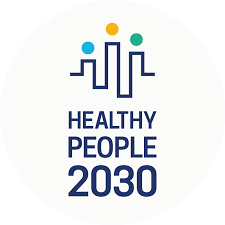

In the first in a series of articles on Healthy People 2030, Dushanka Kleinman, Nico Pronk and colleagues introduce the foundational principle that "the health and well-being of all people and communities are essential to a thriving, equitable society."
The article Promoting Health and Well-being in Healthy People 2030, published in the Journal of Public Health Management and Practice, describes how Healthy People 2030 continues the Healthy People initiative’s tradition of serving as a catalyst for action by expanding the focus of health promotion to promoting health and well-being.
Dr. Kleinman, associate dean for research and principal associate dean, co-chaired the Secretary’s Advisory Committee on National Health Promotion and Disease Prevention Objectives for 2030 and has been engaged with the Healthy People initiative over the decades.
“It has always been about stakeholders--not the government--coming together to set the agenda for the country’s overarching health goals,” she explained when she was appointed to the advisory committee in 2016.
As the recognition of the role of mental health in our overall well-being has evolved, the Health People objectives have shifted to redefine “health and well-being” as a single term.
“We wrote about the value of adding well being and what that means,” Dr. Kleinman explained. “It further emphasizes the importance of how people think, feel and function, not just being free from disease. It’s a much broader definition of health. It’s the capacity to live your life fully, to have a high quality of life and be contributing to our society and economy.”
In addition to redefining how we talk about health and well-being, the article describes how the concept of promoting health and well-being has evolved and should emphasize fostering equity and social justice at all levels of society (individual, community, state, tribal and national).
Kleinman and colleagues urge that this requires active involvement and a sense of shared responsibility by multiple sectors to address the social, economic, and physical determinants of health and well-being. They cite the COVID-19 pandemic as a case study of the reciprocal, complex relationships between the health of individuals and the health of society as a whole, as well as the resulting unintended consequences.
Reaching the objectives set out by Healthy People 2030 will require new strategies and investments in monitoring and documenting changes to the population’s health and well-being. The authors describe the need for data partnerships between public health, health care settings, and other sectors and the value of open access data portals at the state level that can inform decision-makers as well as the public.
The take-home message of their first article in the series is that securing health and well-being for all will benefit society as a whole. To do this will require eliminating health disparities, achieving health equity, attaining health literacy, and strengthening our physical, social, and economic environments. The authors remind us that promoting the nation’s health and well-being is a shared responsibility—at the national, state, territorial, tribal, and community levels.
“The Healthy People 2030 Objectives include several new components of great value to the public's health and for public health programs and public health education,” explained Dr. Kleinman. “This article is one of several to be published in this journal. Other topics for upcoming articles include the new definitions of health literacy, health equity and social determinants of health, and law and policy among others.”
Related Links